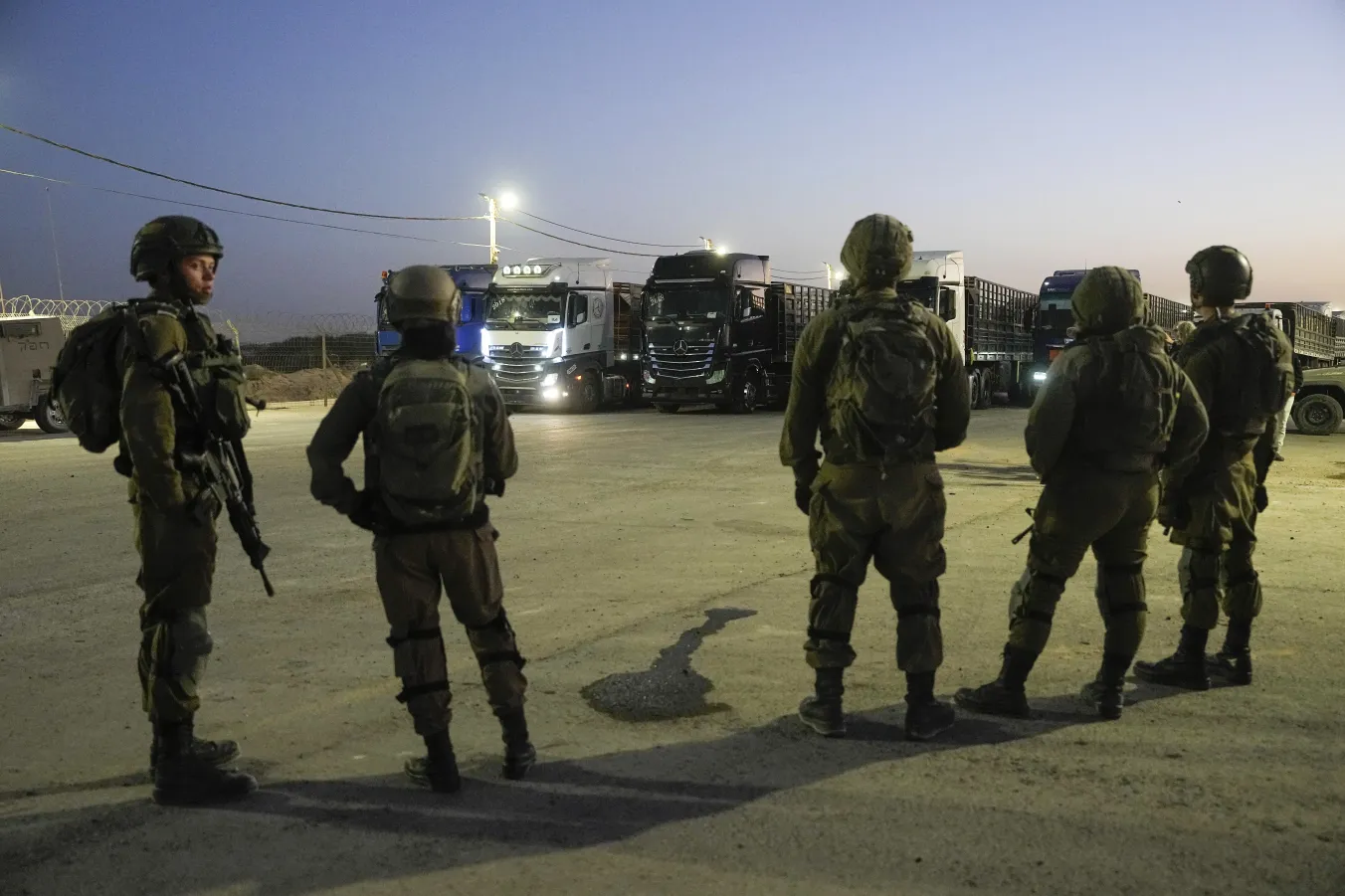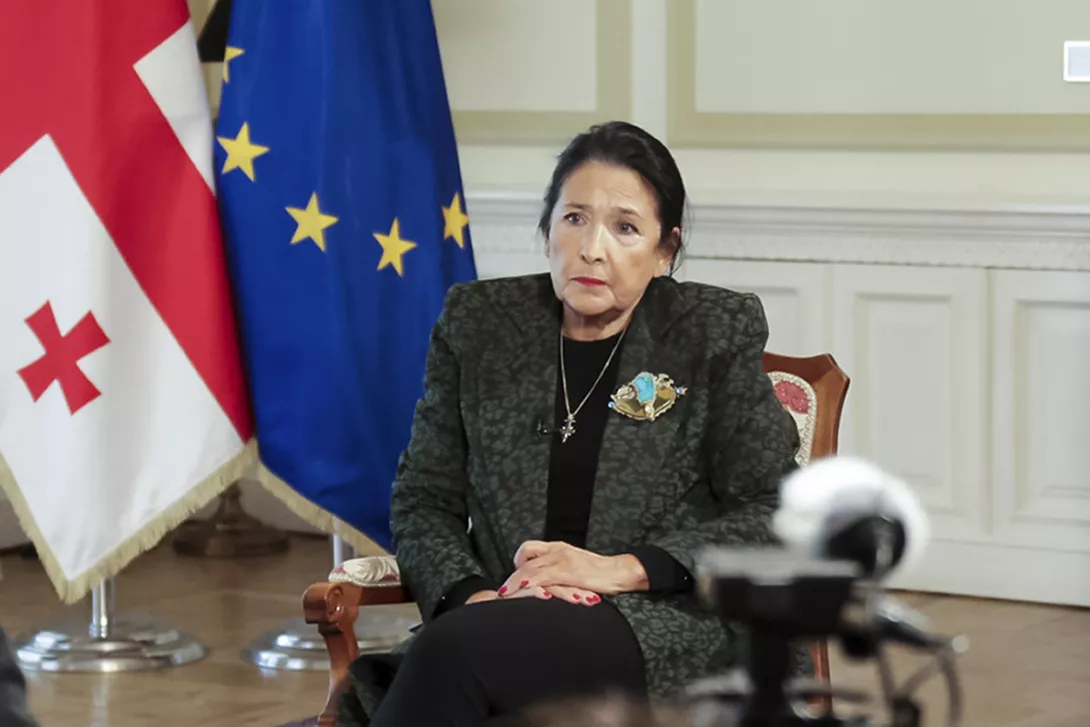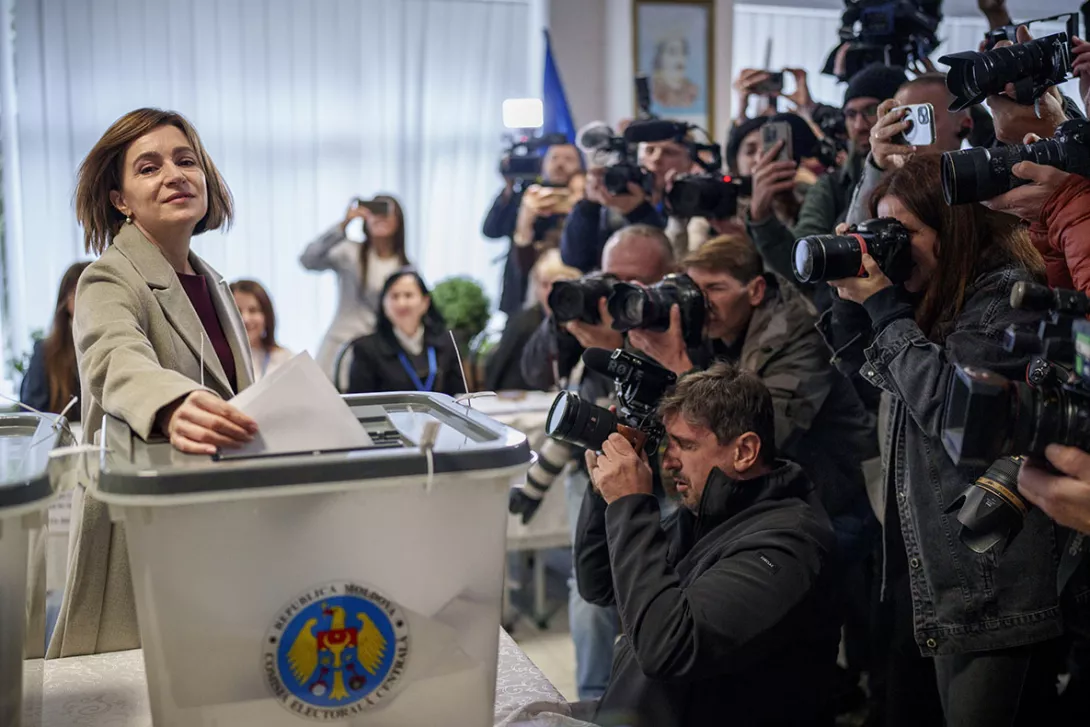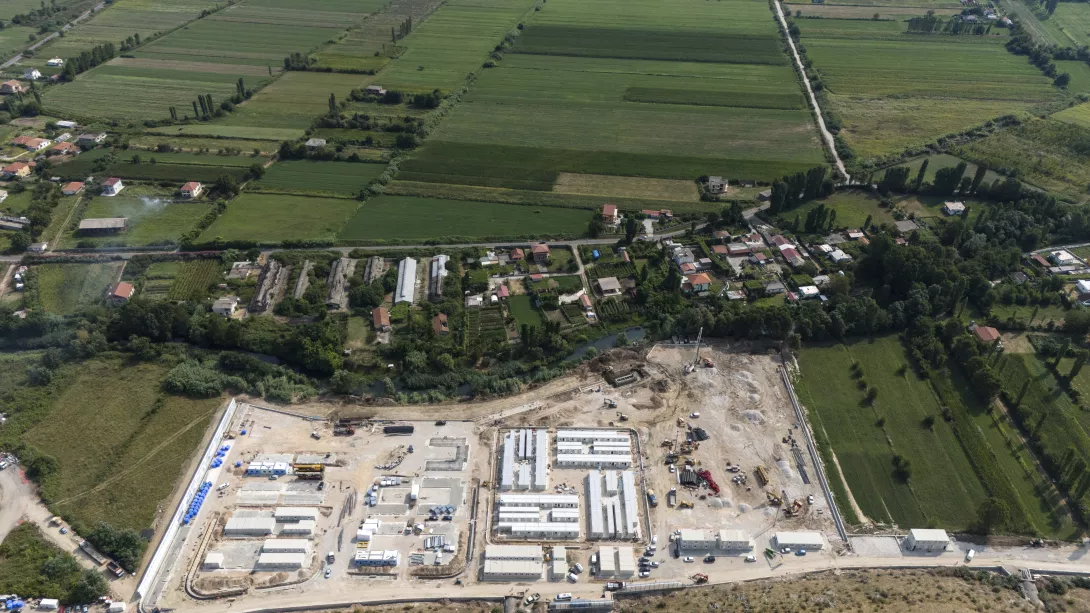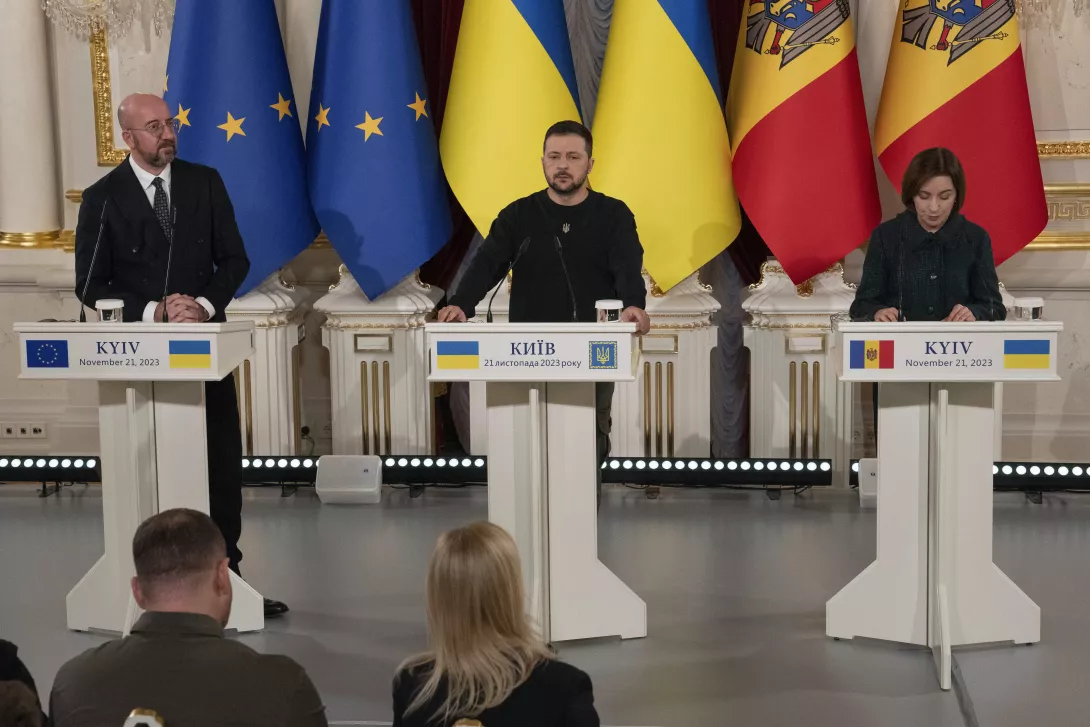Moldova narrowly votes for path towards EU membership

MOLDOVANS voted by a razor-thin majority in favour of securing the country’s path toward European Union membership, electoral data showed today, following a ballot that nearly caused a major setback for the pro-Western president.
With 99.41 per cent of the 1.4 million votes counted in the EU referendum held on Sunday, the Yes vote stood at 50.39 per cent, to 49.61 per cent who voted No — according to the Central Electoral Commission.
The No vote had looked to be ahead until the last few thousand votes were counted from the country’s large diaspora.
More from this author












